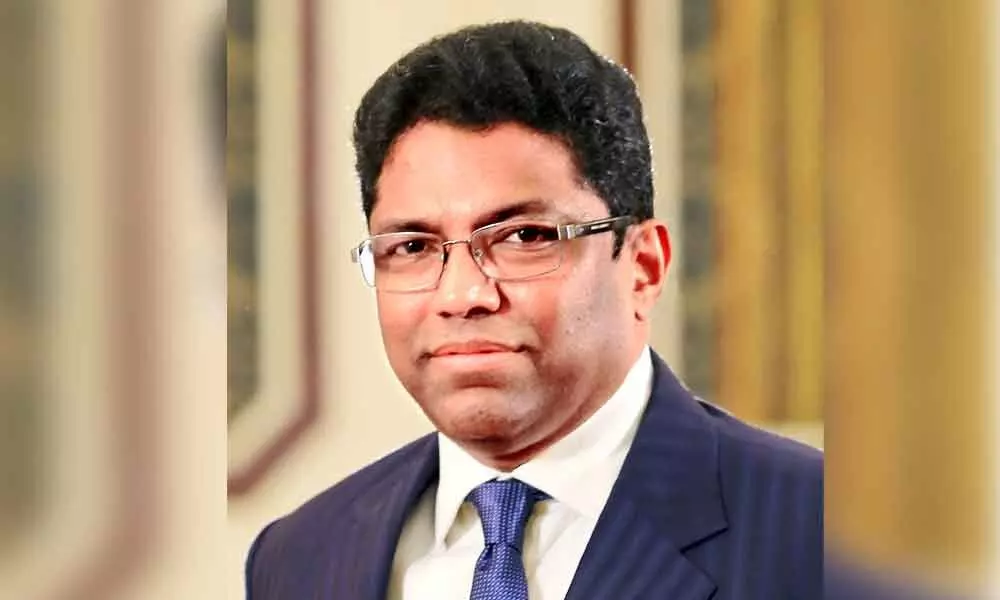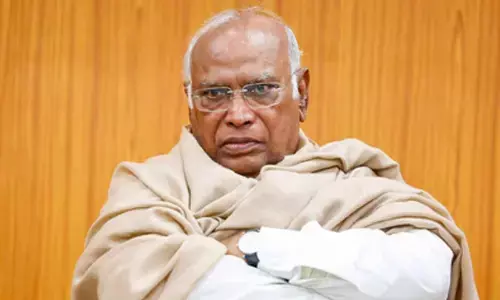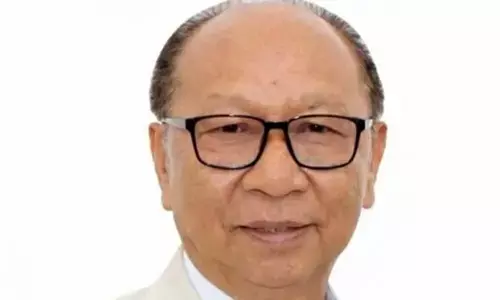Sri City targets $4-billion new investments in next 4 years

Ravindra Sannareddy is the man behind the Sri City dream. As Founder and Managing Director, he developed Sri City
YS Jagan Govt is proactive, helping industries tide over Covid-19 crisis, says Sri City MD
How did Covid impact operations of companies in Sri City?
While the industrial activity in other parts of the country was totally shut down during the lockdown, here in Sri City, around 15 units which produce critical products that are used to fight Covid-19, were operational since March last week.
Immediately after lockdown curbs were eased, over 100 units could resume works in Sri City as the State government, especially the district administrations and police, extended good support. But these industrial units are yet to reach their full capacity due to shortage of workforce, curbs on movement and other issues. We are optimistic that the situation will gradually improve and all the industrial units will soon operate at full capacity.
Will the Covid crisis impact investment flows into Sri City? What kind of investment target do you have for next two years?
An economic crisis like this obviously impacts investment inflow into any industrial park. However, because of our swift response to the pandemic, we have seen some stability returning. In the past three months, we could convert a few of the leads that were in the pipeline into projects.
I am happy to say that even during this crisis, investors from other countries are keen on setting up their units here. However, they couldn't come here because of the ban on international and interstate travel. We will be able to decide on investment targets for next two years once the Covid crisis is over.
What new initiatives Sri City will take up over the next two years?
Right now, we are focusing on the revival of industrial activity. The Covid-19 lockdown experience has made us go for new strategies. In the wake of rising Covid-19 cases and due to improper interpretation of relaxation guidelines by the officials at operational level, employees are facing challenges in commuting to their work places.
To overcome this situation, we have advised managements to locate their staff in the park itself. In fact, we have built Sri City on the principles of 'Work, Live, Learn, and Play'. As per the needs projected, we will now focus on creation of social infrastructure such as residential development.
We will rope in developers to construct houses with sizes starting from a single bed room to four-bedrooms as we want to provide a 'walk to work' environment. We are also planning more healthcare facilities, educational institutions, multi-cuisine food courts and skill development centres.
Over 50,000 people are currently working in Sri City. How long will it take for Sri City to cross the milestone of one lakh employees? What kind of total investments will it attract by that time?
Our initial target was to reach one lakh employee milestone in the next two year. But now with all the uncertainties caused by the pandemic, we will not be able to specifically outline the new employment opportunities until stability is restored.
As of now, Sri City attracted total investments of about $4 billion and we aim to double it in the next three to four years. However, it all depends on how the financial system, markets and global economy play out post-Covid.
In recent times, there is a campaign to boycott Chinese products in the wake of border tensions. Has it impacted operations of any companies in Sri City?
We have a few Chinese manufacturing companies. The current anti-Chinese campaign mainly targets a ban on made-in-China goods. Whereas, Chinese companies that invested in our country, produce and market their goods here or export to other countries, thus contributing to our economy.
Hence, as of now, we do not see any impact. However, the revised FDI policy may slow down future Chinese investments.
How did the Jagan Mohan Reddy government handle Covid-19 crisis, when it comes to the industrial sector?
After the Centre eased lockdown restrictions on April 20, the AP government acted swiftly and came out with steps to enable industries outside containment zones to resume operations. The Industries Department issued orders facilitating movement of workers between green zones. Further, the State government announced several proactive measures for the benefit of the industrial sector.
It announced a Rs1,110-crore package to support the industrial sector, especially MSMEs, battered by Covid-19. Under this, it released pending incentives, waived off minimum demand charges for three months for MSMEs and extended support to other industries.
Above all, Chief Minister YS Jagan Mohan Reddy personally interacted with industrialists and sought their suggestions recently. It is the first time that such an interaction has taken place in the State.
The State government also announced setting up of 30 skill development colleges and a university to ensure that a skilled workforce is available. We have an extremely proactive government which has realised the importance of industrial growth.
What should the AP government do to attract more investments?
The AP government is leaving no stone unturned to attract more investments. Anticipating that foreign investors might withdraw investments from China, the AP government has already initiated steps to turn AP as a preferred destination for investments. The Industries Minister and other senior officials are taking part in various national and international forums through webinars, pitching for investments.
The government constituted a task force headed by Industries Minister and with officials of seven core departments for speedy approvals. As we understand, the new industrial policy will focus on offering performance-based incentives only for those investors who perform well in terms of production, employment generation, and meet the deadline as mentioned in the agreement, rather than luring all investors with incentives.
The policy will also ensure that existing units get support. All these proactive steps will make AP 'the most investor-friendly State' in India.
Which segments or sectors that the AP government should focus on to increase the investment flow?
AP is a viable investment destination for sectors like pharmaceuticals & formulations, biotechnology, aerospace & defence manufacturing, agro & food processing, automobile & auto components, electronics, energy, petrochemicals, textile and apparels, etc. Ease of doing business is more crucial for any industry. AP stands first in the country in this and it needs to be sustained for the State to be competitive.
Will you develop more industrial hubs on the lines of Sri City if the AP government comes forward to offer land?
Building good quality infrastructure is critical. Industrial parks are long-gestation projects and the investment in them is called 'patience capital'. For developing industrial parks of this kind and scale, one needs to have deep pockets and a long-gestation time of at least seven to 10 years. At this moment, our priority is to focus on Sri City and realise its full potential.
How long will it take for the economy in India to come out of Covid crisis?
Over the past decades, India has relatively been immune to global recessions. Our country posted positive growth even during 2001 and 2008 global slowdowns. However, India is not immune to the current Covid-19 crisis, with the economy likely to contract over the coming two years.
It may take a long time for the economy to recover even after the Covid-19 leaves the country. The recovery is expected to be slow and uneven. However, I am positive that we will be seeing green shoots from the last quarter of this financial year.




